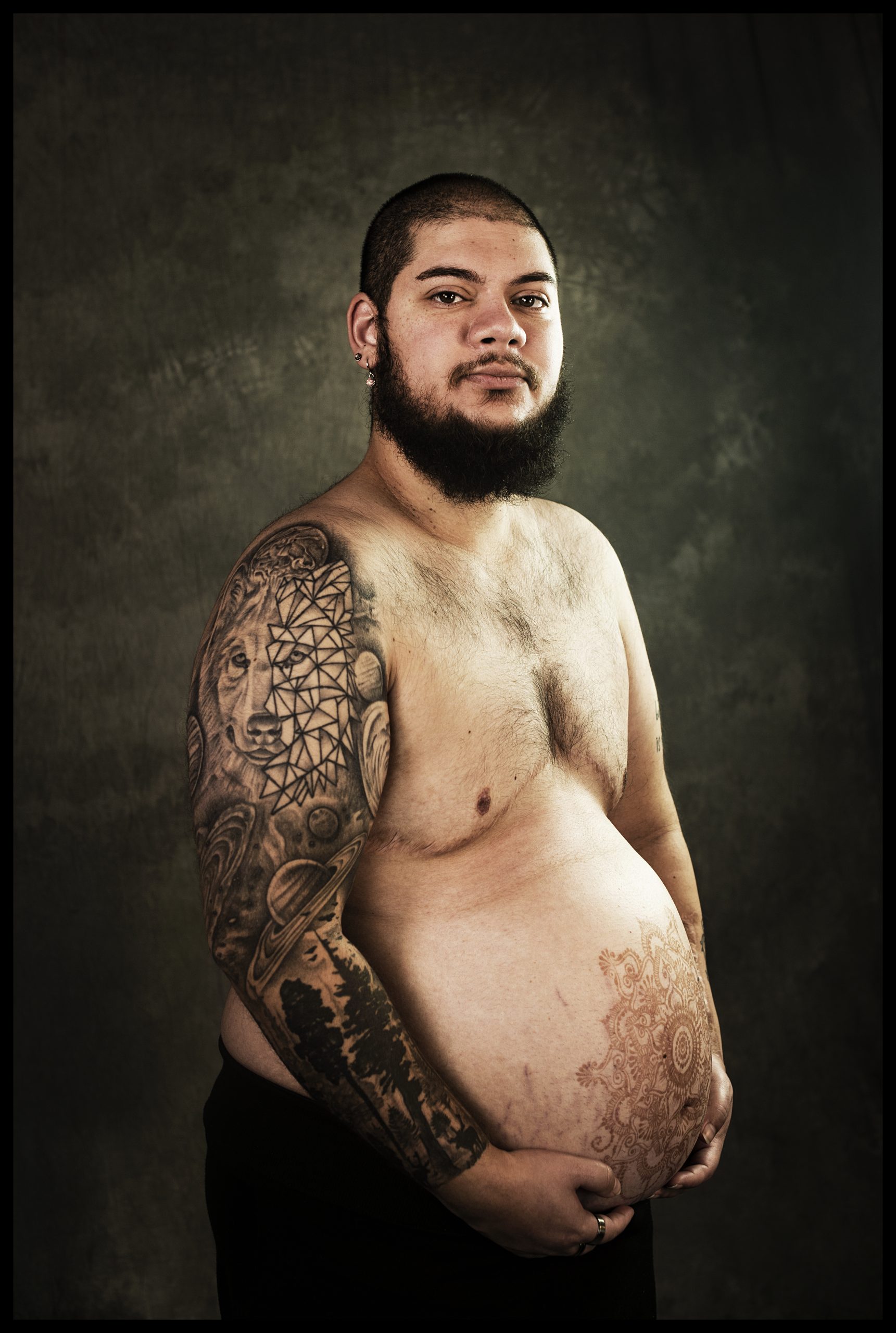‘Together with my partner, David, I decided to go for it and try to become pregnant. One day, one-and-a-half years later, a thin line on a pregnancy test announced that I was pregnant. We were over the moon.
In order to remain pregnant, I had to stop taking testosterone – the hormone that, during my transition, had enabled my beautiful beard to grow and made my body more befitting to who I am. Instead, oestrogen and other hormones started to flow through my veins. During the first two trimesters, I was tired and sick. Seeing my belly getting bigger and bigger was beautiful, but I also realised that it could make me vulnerable. Although I am non-binary, I am seen as a man. Being read as a bearded butch man with a pregnancy belly can lead to unsafe situations: from ignorant questions to hate speech and even violence.
‘Seeing my belly getting bigger and bigger was beautiful, but I also realised that it could make me vulnerable’
Although we received supportive reactions from the people around us, the law and the social system in the Netherlands are not built for pregnant people with a trans and non-binary experience. Which is not very surprising given the fact that until 2014, people could only change their gender on official documents if they accepted undergoing an irreversible sterilisation procedure. Things have changed for the better – the Dutch government recently officially apologised for this law – but things are still far from ideal.

Because I am not a woman, I cannot get parental leave like other pregnant people. Requesting an insurance package is complicated, I have to explain myself constantly. After I give birth and we register the baby, I will automatically be registered on the birth certificate as the mother. Instead, I want to be able to be registered as a parent, because I am not a woman and not a mother.
‘Words matter and representation matters. It is important to be acknowledged for who you are’
David and I are going to court to fight this. We are not only doing this for ourselves, but also for other parents who do not identify with the mother/father dichotomy. Words matter and representation matter; it is important to be acknowledged for who you are. I refuse to keep silent about things that are not right.
At the moment, David and I are making a documentary about our beautiful and sometimes complicated journey to parenthood. When we grew up, there were no examples of couples like us; we want to show all trans people and their families and friends that after a transition, there is a whole life waiting for you, full of love. Starting your own family can be a part of that.’

